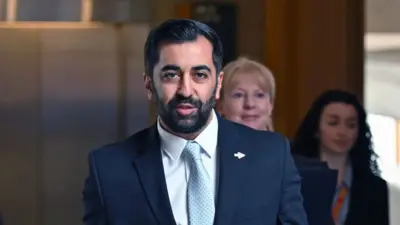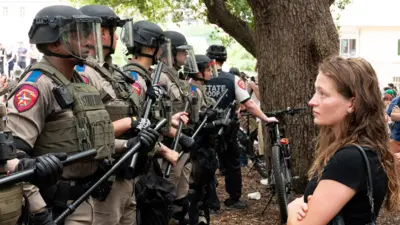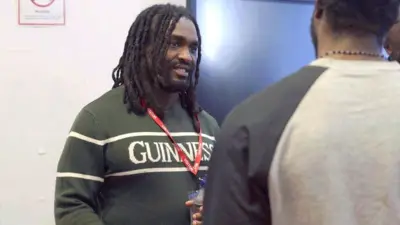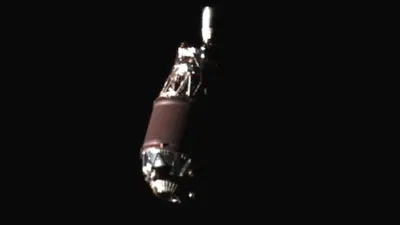We've updated our Privacy and Cookies Policy
We've made some important changes to our Privacy and Cookies Policy and we want you to know what this means for you and your data.
Ukraine war: Lyman retreat sparks rare criticism of Russian top brass
- By Jen Monaghan
- BBC Monitoring
Image source, Getty Images
The withdrawal of Russian troops from the strategically important town of Lyman in eastern Ukraine has prompted rare public criticism of the military's top brass by prominent Russian figures and influential social media accounts.
But it's not opposition or anti-war voices who are leading this chorus of discontent, it's pro-war voices who are unhappy with the way in which the defence ministry is conducting its war in Ukraine.
One of the first to react to the loss of Lyman was Ramzan Kadyrov, the strongman leader of Russia's Chechnya Republic and a staunch supporter of President Vladimir Putin.
In a Telegram post on 1 October, he singled out General Alexander Lapin, commander of Russia's Central Military District, and senior officers at the Russian General Staff for the loss.
"Were it up to me, I would have demoted Lapin to private, stripped him of his awards, given him an assault rifle and sent him to the front to wash away his shame with blood," he declared in his post, which has been viewed more than 7.6m times.
His criticism of the Russian military command was later endorsed by Kremlin ally Yevgeny Prigozhin, a media mogul and founder of the Wagner private military company.
"The expressive statement by Kadyrov is not entirely in my style. But I can say to it, Ramzan, you're a star, say it like it is!" he said in a press release put out by his Konkord company on their VK social media page.
Is Moscow's political outlook shifting?
Russia's media landscape is tightly controlled, so it was no surprise that the country's three major TV channels played down the retreat from Lyman in their primetime evening news bulletins on 2 October, and ignored it altogether in their morning news bulletins on 3 October.
However, video-sharing platforms like YouTube and the social media channel Telegram are increasingly gaining in popularity in Russia amid a ban on sites like Facebook, Instagram and Twitter - and it was here that further criticism of Russia's top brass could be found.
During an appearance on Kremlin propagandist Vladimir Solovyov's YouTube channel on 1 October, lawmaker and former general Andrei Gurulyov said he "could not explain the surrender of Lyman".
Image source, Getty Images
"This is probably a symbolic watershed moment, and not only militarily but also politically," he said.
He then tried to endorse Kadyrov's scathing criticism of the Russian command over the loss of Lyman, before being cut off by the presenter, who said it should be up to officials to comment on Kadyrov's remarks.
There was also a lively debate on nationalist Russian Telegram channels following the loss of Lyman, with blogger Anastasiya Kashevarova particularly outspoken.
In a Telegram post viewed more than 1.2m times, she savaged those who had defended General Lapin from Kadyrov's criticisms and who refused to acknowledge that "there are questions" to answer for Defence Minister Sergei Shoigu and chief of General Staff Valery Gerasimov.
"Are you men or not? Do you have any balls or not? Why are you still mincing your words lest something bad happens? You are still defending Lapin in your cowardly posts," Ms Kashevarova said.
"Is the president aware of what is happening? Is anyone keeping him apprised? Where are the supplies? Where are the Armata [tanks]? Where is everything? How did it come to this? Has it all been stolen? Sold off? Where has it all gone? Did it even exist in the first place?" she went on to ask.
However, the pro-Kremlin Readovka Telegram news channel took issue with public criticism of the military in principle.
"Our own hotheads can sometimes be worse than enemy commandos and saboteurs," it said, in a 1 October post viewed more than 1.4m views. It went on to accuse the Russian "turbo-patriots" of doing the enemy's job for them by trying to apportion blame.
Top Stories
Features & Analysis
Most read
Content is not available








